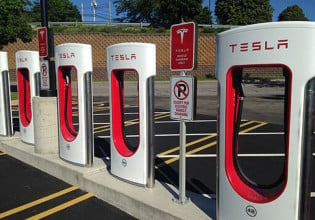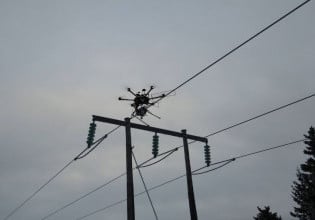Monolithic Power Aims for Si / SiC Cost Parity within 4 Years
To enhance efficiency in electric energy transfers from high-voltage grids to consumer appliances and other applications, the U.S. Department of Energy's ARPA-E program awarded a $3.2 million grant in October to Monolith Semiconductor, Inc. Monolith exclusively uses the Cornell NanoScale Science and Technology Facility (CNF) to make state-of-the-art silicon carbide MOSFET (metal-oxide-semiconductor field-effect transistor) switches, which can amplify or reduce large volumes of power during energy transfer. Within four years, the company hopes to sell silicon carbide switches at today's cheap silicon prices, reports Cornell’s Blaine Friedlander.
“With the help of the CNF, we’re developing the manufacturing processes to dramatically reduce the cost of silicon carbide switches – which makes them accessible and ideal for renewable energy inverters, power supplies, industrial motor drives, electric vehicles and a smarter electrical grid,†stated Kevin Matocha, president of Monolithic Semiconductor. This means, for example, that future electric cars plugged into your carport likely will be easier to charge, travel longer distances on cheaper electricity and become less expensive to manufacture, says Matocha.
“To transform America’s energy infrastructure, we will need innovative technology options that can radically improve how we convert and use energy,†says Cheryl Martin, deputy director of ARPA-E. “ could result in some of the critical components needed to update our aging infrastructure and reduce power losses from the grid.â€
Monolith Semiconductor started using the CNF cleanroom in December 2012, and the company created its first prototypes in May 2013. Matocha says his company uses CNF for its etchers, furnaces, and deposition and photolithography tools. “The main reason we are working at the CNF is their collection of tools and – equally important – the well-qualified engineering staff that keeps the tools up and running and available for use,†Matocha says. The National Science Foundation supports the CNF.






